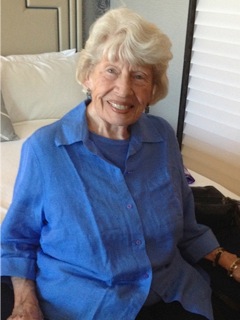by Julia Bluhm
The suggestion for this blog came from Michael Dobson, also one of Virginia Bluhm’s grandchildren.
On August 26, 1971, New York City’s fifth avenue was flooded with over 50,000 woman participants in a nationwide strike for equality in politics, employment, and education. It was organized by Betty Friedan and the National Organization for Women, and consisted of many separate strikes in different parts of the country. While New York City’s event was certainly the biggest, including two 40-foot banners that were hung from the Statue of Liberty to advertise, the national event as a whole was “the largest protest for gender equality in U.S. History.” Somewhere in the massive crowd on fifth avenue was my grandmother, Virginia Bluhm, and her friend Arlene marching toward Bryant Park to hear speeches from Gloria Steinem, Betty Friedan, and Bella Abzung.
in politics, employment, and education. It was organized by Betty Friedan and the National Organization for Women, and consisted of many separate strikes in different parts of the country. While New York City’s event was certainly the biggest, including two 40-foot banners that were hung from the Statue of Liberty to advertise, the national event as a whole was “the largest protest for gender equality in U.S. History.” Somewhere in the massive crowd on fifth avenue was my grandmother, Virginia Bluhm, and her friend Arlene marching toward Bryant Park to hear speeches from Gloria Steinem, Betty Friedan, and Bella Abzung.
My grandmother grew up in New York City, graduated from high school, got married and had two children without ever having gone to college, as was common for women during the 1950s and 60s. As my dad and aunt grew older, she enrolled in Hunter college and got a degree in sociology. She was in graduate school during the time of the 1971 protest, and earned her PhD in sociology soon after. This was an extremely impressive feat, since in 1970 only 11 percent of students who received doctorates were women. Women were discouraged from pursuing advanced degrees, because it was assumed that many would drop out to have children and start families. Ginny, my grandmother, completed hers while married and raising my dad and my aunt. Is she a superhero? Maybe. But mostly she is a smart, dedicated, hardworking woman who proved that you do not have to chose between being a mother or being educated and having a successful job, as many people thought at the time.
Not only did my grandmother graduate under such rare conditions, she had one of the coolest dissertations ever. She wrote several hundred pages on the role of women in minorities and television news broadcasting. There were very few female news anchors at the time, but she managed to interview a few of them for her paper. She had to keep their names anonymous in case it put their jobs in danger, and she still won’t tell anyone if she ever interviewed Barbara Walters.
After earning her degree and PhD, she worked as an adjunct professor of sociology in the Manhattan area. Later, she taught herself how to use computers and worked for the American Cancer society. The more I learn about my grandmother, the more I am amazed and, honestly, surprised. I always knew she was a great person, but I didn’t realize until recently how much she has done that relates to feminism.
As August 26th (Women’s Equality Day) approaches, let’s celebrate all the wonderful people, like my grandmother, who overcame odds and carried the feminist movement to where it is today. I love you, Grandma Ginny, for your warm hugs and thoughtful gifts, but also for the inspiration you have given me by being the dedicated, successful woman that you are.
